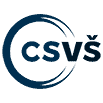Current projects
Part of the work of the CHES is cooperation on projects with international, national and regional partners. We have long-term experience in preparing, leading and managing projects. If you are looking for a partner for projects in the field of higher education, please contact us.
EUROSTUDENT VIII (2021-2024)
EUROSTUDENT VIII traditionally focuses on the socio-economic conditions of study at higher education institutions and its main target groups are students in Bachelor and Master programmes.
In addition to questions related to the main research topic, the questionnaire of the current survey focuses on health aspects of life, discrimination and possible impacts on studies (including support provided in adverse situations by the higher education institution).
More about the project EUROSTUDENT VIII (2021–2024)
UASiMAP (2020–2023)
The aim of the Erasmus+ UASiMAP (Mapping Regional Eengagement of Universities of Applied Sciences) project is to develop a self-reflection tool for universities of applied sciences (UAS) in the field of regional engagement that will measure the local engagement of UAS and the development of their further strategies. The project maps UAS activities and aims to collect examples of good practice in this field. It will also draw on the experiences and conclusions of other similar initiatives and projects (e.g. HEInnovate, U-Multirank, TEFCE).
EURASHE is the principal investigator of the project. Partners are Augentis (Italy), Flemish Council of Universities of Applied Sciences and Arts (VLHORA), Hungarian Rectors’ Conference, Technological Higher Education Association (THEA, Ireland), The Portuguese Polytechnics Coordinating Council, TTK University of Applied Sciences (TTK UAS, Estonia) and Centre for higher education studies, Prague (CHES, CZ).
The results achieved so far in each WP can be found on the UASiMAP website. Other two available publications are Selected Chapters of Contemporary Topics in Vocational Education (information on Czech and Slovak vocational education in Czech), and Mapping the Role of European Universities of Applied Sciences as Entrepreneurial Hubs of Regional Development.
Personal learning environment of undergraduate medical students (2020–2023)
The project is led by the Higher education institution of Health Sciences Prague, and involves the Technical University of Liberec and the Association of Professional Tertiary Education.
The aim of the project is to create a Personal Learning Environment (PLE) for medical students of general nurse and paramedic, which are highly regulated in higher education institutions. The project examines, for example, the low level of student concentration and motivation and proposes improvements. It is aimed at teachers and students of these disciplines, who will be offered personalised flexible learning pathways using modern 21st century teaching methods and technologies, within the highly regulated framework of the medical fields.
The output of the project will be a comprehensive research report including a methodology for introducing PLE in medical fields, a didactic method and textbook showing also concrete examples of good practice, 2 research articles, 4 workshops and a final conference. Further information can be found on the SPTV website (in Czech).
EUROGRADUATE 2018–2019 and 2022-2024
The EUROGRADUATE project, co-funded by the Erasmus+ programme of the European Union, was set up as a pilot survey in 2018-2020 and involved 8 Member States, including the Czech Republic. In 2022, it is followed by a second phase of the pilot survey, lasting a total of 30 months until June 2024. 17 EU countries are already participating in this phase. The aim of this phase of the pilot survey is not only to increase the number of participating countries, but also to increase the quality of the data and to test the use of administrative data in a part of the participating countries.
In the Czech Republic, the project is coordinated by the team of the Centre for Higher Education Studies. The European EUROGRADUATE survey in the Czech Republic will merge with the national survey, thus reducing the burden on higher education institutions and respondents. Data collection will take place from November 2022 to mid-January 2023.
The aim of the first phase of the 2018-2019 pilot survey was primarily to test the feasibility of a Europe-wide graduate survey, identify potential barriers and find solutions. Thus, the Czech Republic, through the Centre for Higher Education Studies, participated in the planning, design and implementation of the survey. The second objective of the project in the first period was to obtain comparable data on higher education institutions graduates in Europe to help policy makers monitor their labour market participation, skills development and also trends in social inequalities. The field phase of the first round of the pilot survey took place between October 2018 and February 2019 and covered higher education institutions graduates in the academic years 2012/2013 and 2016/2017.
Eurograduate 2022 is particularly interested in the experiences of university graduates during their studies and the impact on their professional and civic life. The main topics of the survey are the characteristics of graduates‘ study programme, skills acquired, educational pathways and modes of learning, international mobility, labour market outcomes, followed by political attitudes and political participation. Questions on some personal characteristics of the graduates, such as their personal and social background and health status, are then asked in order to better understand the different groups of graduates.
If you want to know more about the project, please see https://www.csvs.cz/en/current-projects/eurograduate/, furter, you can find more details, including the final reports from the initial phase of the pilot survey (national country reports, the report evaluating the implementation of the survey and the project summary report) and a number of other documents on the EUROGRADUATE website.
Strengthening Women's Entrepreneurial Capacity (2023)
The project led by CHES and supported by V4 and Ukrainian partner organizations, aims to build on and develop the entrepreneurial mindset of temporarily displaced Ukrainian women via an online training programme on starting their own business in V4 countries. Relevant knowledge and developed skills will result in participants’ business ideas ready to be implemented locally at places of temporary residence.
This project is financed by Visegrad fund and these subjects are included in the project:

Copyright All Rights Reserved © CSVS
